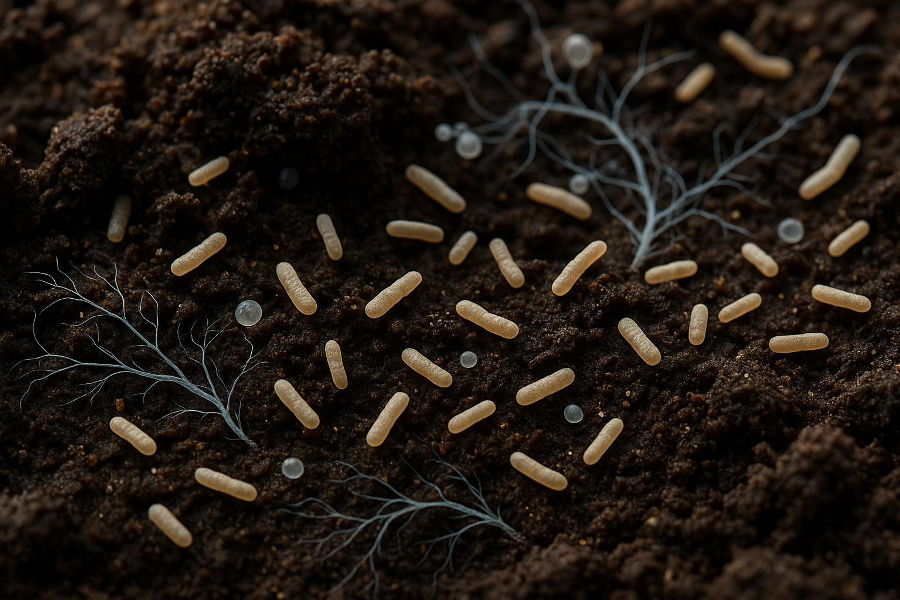How to Increase Microbial Activity in Soil
Soil microbes are living organisms such as bacteria, fungi, and actinomycetes that improve soil fertility and crop growth. They help in nutrient cycling, decomposition of organic matter, and protection of plants against diseases. Maintaining high microbial activity is essential for healthy and productive soil.
Why Microbial Activity Matters
-
Improves soil structure and water-holding capacity
-
Converts organic matter into plant-available nutrients
-
Supports root growth and enhances plant immunity
-
Increases soil carbon and long-term fertility
Proven Methods to Increase Microbial Activity
Add Organic Matter
Apply well-decomposed compost, farmyard manure, or green manure. Organic matter provides energy and nutrients for soil microbes and increases their population.
Use Crop Residues and Cover Crops
Leaving crop residues or planting cover crops like legumes improves microbial diversity by supplying root exudates and organic carbon.
Reduce Excessive Chemical Use
High doses of synthetic fertilizers and pesticides can harm beneficial microbes. Use balanced fertilization and combine with biofertilizers to maintain microbial balance.
Maintain Soil Moisture and Aeration
Proper irrigation and avoiding waterlogging keep microbes active. Tillage should be minimal to preserve microbial habitats in the soil.
Apply Bio-stimulants and Microbial Products
Products containing humic acid, fulvic acid, seaweed extract, or beneficial microbes like Azotobacter and Trichoderma enhance microbial growth and soil activity naturally.
